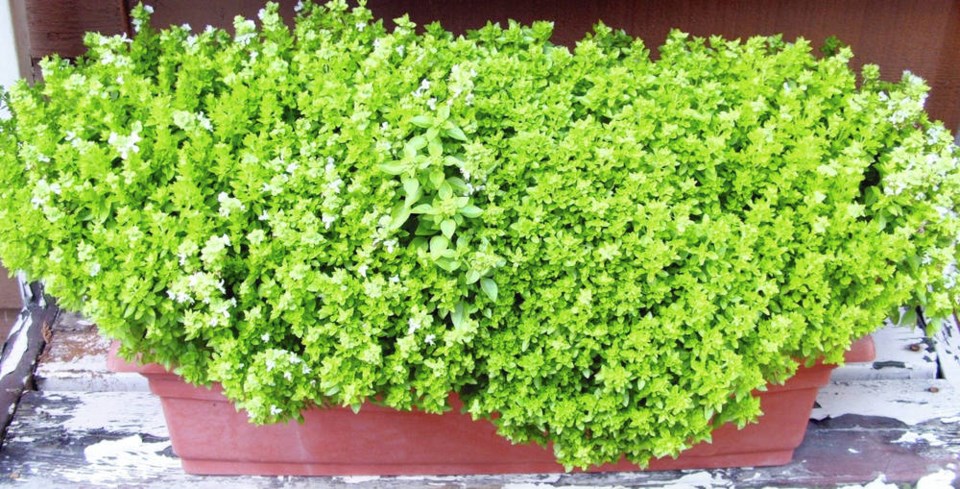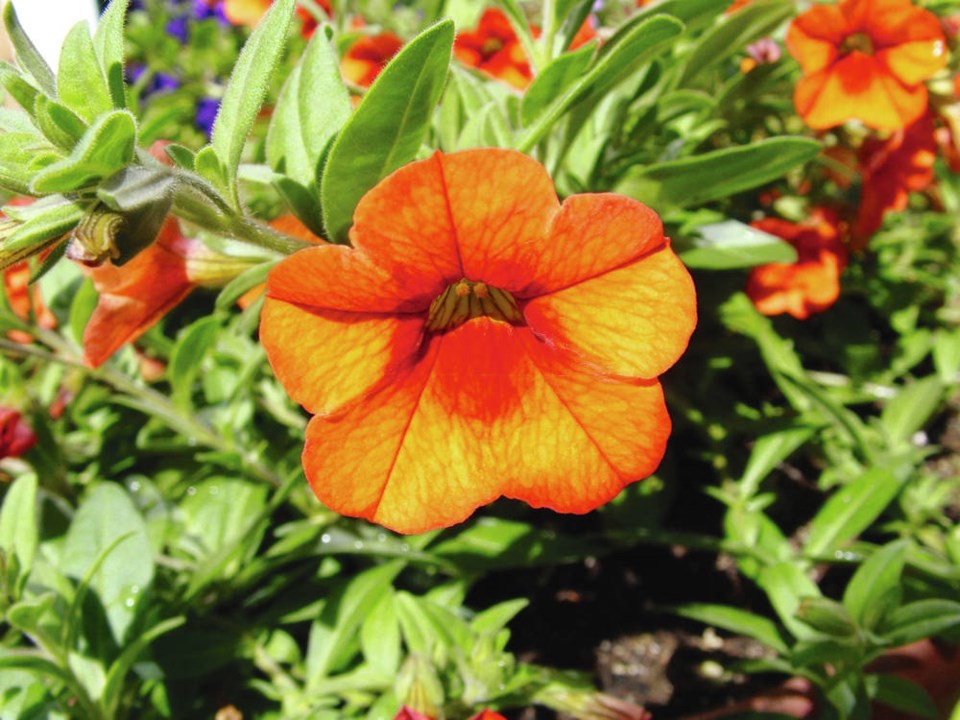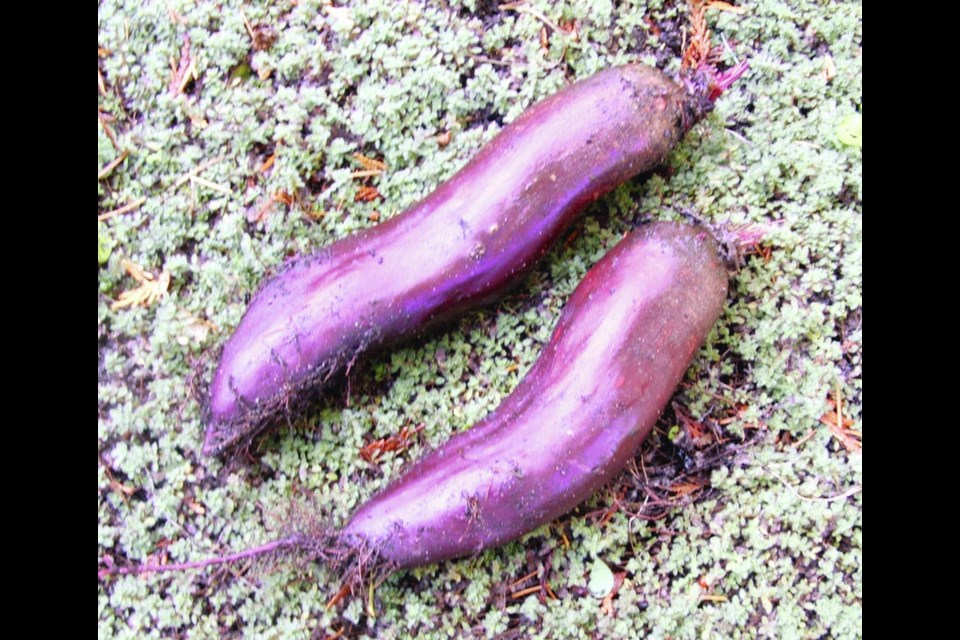The catalogue from William Dam Seeds has long been a significant player in my planting repertoire. The company was founded by Dutch immigrants to Canada 72 years ago, about the same time that some old friends of mine immigrated as a newlywed couple.
Also from Holland, Andrea and Nick — keen gardeners whose extensive vegetable plots fed their eventual family of eight — introduced me to William Dam Seeds, now run by the founder’s grandson.
The company was the first to list my now favourite beet, a cylindrical type called Taunus. It’s still the only company I know of offering Siderno, my best tasting and earliest patio tomato, just 45 centimetres high, that I grow in pots every summer. Along with potted tomatoes, I grow mini-hedges of compact, small-leaved basil in windowbox style planters on the patio. Pluto is one of the best, good also for indoor winter pots.

I’ll be growing more of Dropshot, a ferny-leaved Mexican marigold (licorice marigold) that was the source of much sweet snacking in the garden last summer. And I’ll be trying a pink onion called Blush.
Among Dam’s new listings, I’ll be growing Red Darling, a Brussels sprout with red-purple plants and sprouts, and Milagro, a “luscious, large-framed butterhead” lettuce good for growing from spring through fall and in winter under tunnelling. New in the Kabloom series of Calibrachoa is Light Pink Blast, which I trust will be as beautiful as the orange-flowered form in the same series.

Angel wings. Accepting a flat of rooted angel wing begonia cuttings from my son at Christmas was like greeting old house-plant friends. Years ago, I had a collection of the plants at the living-room window — graceful plants with long, pointed, silver-speckled leaves below which hung showy trusses of pink flowers.
The plants are commonly called “angel wing” begonia for the pairs of leaves, pointing in opposite directions, that have the shape of a pair of wings on an angel. There are several similar begonias of this cane-stemmed type, but most popular is Begonia lucerna, or to be more precise, B. Corallina de Lucerna. In the plants’ native habitats, they grow 180 to 240 centimres tall. In pots, depending on the container size, they usually grow 30 to 60 cm tall. Pinching them back induces bushiness and a reduced height.
Angel wing begonias are not demanding. They are fine in the usual tropical house-plant conditions of average warmth, bright indirect light, a moist soil that is allowed to dry a little on top before watering, and reduced watering in winter.
Reminders. Here are a couple of timely projects to consider:
• Tomatoes. If you grow compact tomato plants for patio, deck or balcony containers, start the seeds this month for transplanting into their summer pots in April. I keep mine in a protected place until overnight low temperatures no longer dip below 10 C. Then they can be placed in their summer sites.
• Grasses and perennials. Deciduous ornamental grasses should be cut down, before new growth has begun to emerge. As well, discoloured and/or collapsed foliage on perennials should be removed now.
HCP courses. The Horticulture Centre of the Pacific, 505 Quayle Rd. in Saanich, is offering the following courses. For details and online registration, go to hcp.ca/events. The site’s home page also lists courses. Register online or by phone: 250-479-6162.
• Plant Identification and Culture. The next class in this course is online via Zoom, on Saturday, Feb. 20, 1 to 4 p.m. Jane Tice will discuss 25 plants with their site and soil needs, maintenance and landscape uses. Cost for members $35, others $45.
• Cannabis for the Home Grower, Tuesday, Feb. 23, 6 to 9 p.m. Members $60, others $70.
• Basket Weaving with Rush and Soft Materials, Tuesday, Feb. 23, 9:30 a.m. to 4:30 p.m. Members $120, others $140.
• Ethics of Wild Harvesting (through the lens of five commonly available wild plants), an online course on Tuesday, Feb. 23, 6:30 to 8 p.m. $25 per screen.
• Watercolours with Richard Wong - Seahorse, an online course on Thursday, Feb. 25, 6 to 8 p.m. $20 per screen.



